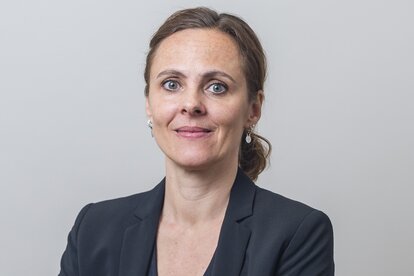Nearly one million people who have fled from Myanmar to Bangladesh live in adverse conditions, which could become even more challenging with the start of the monsoon season. With Helvetas’ support, 70,000 people now have the urgently needed latrines and kitchens powered by biogas. The new facilities help the Rohingya refugees overcome disease and hunger and at the same time save the nearby forests from being logged for fuel.
The situation in the refugee camps at Cox's Bazar, Bangladesh, is getting worse: around one million women, children and men, who have fled Myanmar, live in cramped and dire conditions. Rainfall that will come with the approaching monsoon season can cause entire slopes to slide down and destroy the makeshift dwellings of hundreds of thousands of refugees.
Turning waste into fuel
The independent Swiss development organization Helvetas has been supporting Bangladesh for 18 years, and continues to support it today, when the country is facing a humanitarian crisis. Among other things, Helvetas supports the construction of the urgently needed latrines, which prevent the outbreak and spread of diseases in the refugee camps.
The project has an efficient approach to solving the camp energy and sanitation problems: the waste from latrines – which would remain at the camps without a sewage system in place - is converted into biogas. The fuel is then used for cooking in the new rainproof kitchens. Around 20,000 people have benefitted from these facilities.
Helvetas is also involved in hygiene awareness: women, men and children learn how to apply simple practices, possible in these challenging conditions, to ensure that drinking water remains clean and that diseases do not spread.
How information saves lives in the refugee camps
As one of the few Swiss development organizations accredited in Bangladesh with official approval to implement projects, Helvetas is responsible for managing a camp district. Helvetas serves around 70,000 refugees on behalf of UNHCR, the UN Refugee Agency.
Together with local partner organizations, Helvetas informs families personally about dangers such as imminent heavy rainfall or landslides and locations where they can move if the current sites become too dangerous. At the same time, the organization raises awareness about available services such as hospitalization, trauma therapy, etc. Helvetas coordinates the activities of the various aid actors in the camp district, identifies current problems and gaps in the relief aid and ensures that the poorest families are cared for first.
The Muslim refugees known as Rohingya come from Rhakine State in the west of Myanmar, a predominantly Buddhist neighboring country. With a population of around 165 million people, Bangladesh is one of the most densely populated countries in the world and one of the poorest countries in Asia; almost a third of the population lives in extreme poverty. Thanks to 18 years of commitment in Bangladesh, good knowledge of local conditions and established contacts with local partner organizations and authorities, Helvetas can provide fast and efficient assistance on the ground. The Swiss development organization is implementing projects worth CHF 3.5 million, and depends on continued donations for the relief efforts.
Further information:


